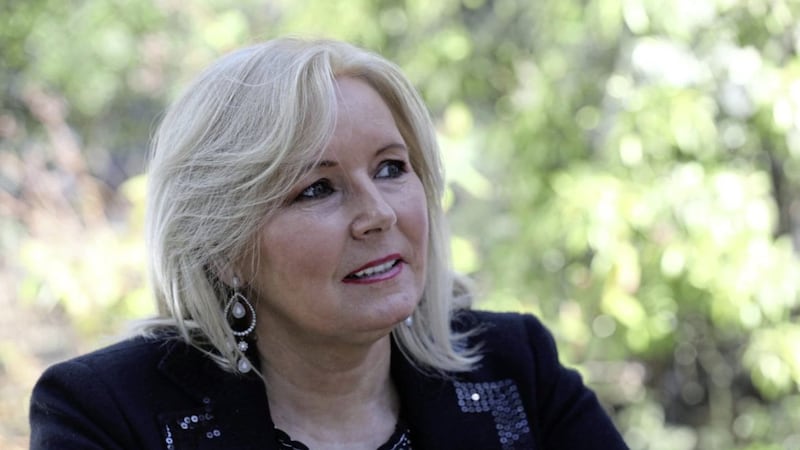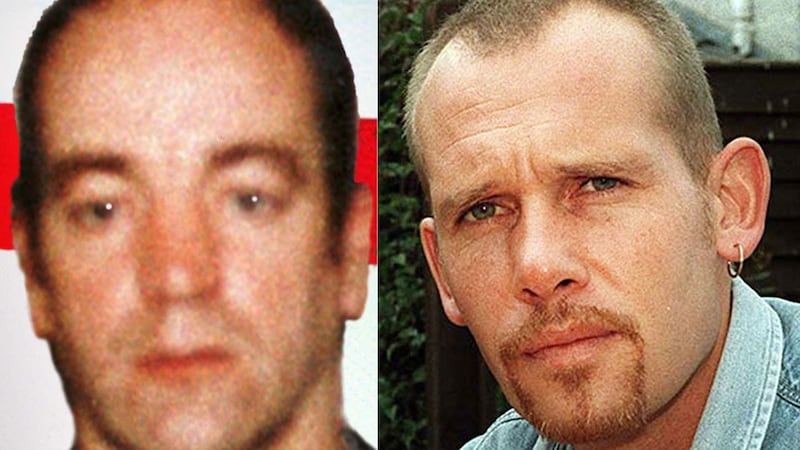EXACTLY one year ago, dozens of nurses approached trade union leader Pat Cullen and asked how they would go about making a will.
Fearing for their lives due to severe PPE shortages during the first Covid surge, these frontline staff were treating the sickest patients and told the Royal College of Nursing (RCN) director they wanted to get their affairs in order to ensure their children were looked after.
"Many, many nurses came here to do that and we supported them through the process. A lot of them were young mothers who felt vulnerable," Ms Cullen said.
"Their way of surviving was to put their own safety systems in place to ensure their families were taken care of in the event of them dying. We had a service where we used particular lawyers to take them through it.
"When you think back to that time there was talk of re-using single-use PPE - but we fought hard to prevent that happening. The least I could do for nurses at that point in time was to in some way protect them by speaking up for them again... having just come out of the most difficult periods that resulted in strike action."
Unlike other parts of the NHS, no nurses have died from coronavirus in Northern Ireland - which the nursing chief says is "incredible" and attributes in part to "standing steadfast" on PPE protection.
But in an interview with The Irish News, Ms Cullen revealed serious concerns about a sharp increase in nurses with "moderate to severe" mental health symptoms since late last year - with some experiencing suicidal thoughts.
Intensive care staff have been particularly affected due to sustained exposure to death and suffering over the past 12 months, with many feeling "life is not worth living".
Such is the scale of those seeking support, Ms Cullen met with the First and Deputy First Ministers as well as health minister Robin Swann two weeks ago to raise the issue.
She told them the RCN has received "hundreds" of testimonies from members "in despair", through a unique software programme which provided "strong evidence" of what is happening on the ground.
One ICU nightshift nurse's devastating account was submitted to the RCN 'SenseMaker' programme in the past fortnight. It was also read to the ministers during the meeting.
The nurse wrote:
"Last week was hell. I didn’t think the situation could get any worse for me but it has and I am totally broken. Not only am I broken but so are my work colleagues and my family, as they fear for my life and their own. I fear for theirs also.
"I’m worried that I’ll bring the virus home to them. I don’t feel I can continue on much longer. I can’t continue working much longer either under such physical and mental stress, demanding and sustained pressure.
"I worry that my patients aren’t getting the care I’d like to give them, it’s not safe and effective any longer and they deserve much more. But due to the staffing levels on night shift I just can’t do it any more and this is breaking my heart."
As well the "distressing" written submissions, Ms Cullen said she had spoken directly with a significant number of ICU staff in February who were struggling to cope.
"During wave one nurses talked about courage and keeping on going. The stories have changed and tell us a completely different picture. They feel they can’t keep going, they feel they’ve been asked to give all of themselves with little in return.
"So when we met with the ministers we set out very clearly the evidence that we have in relation to the stories we've collected.
"We told them that the mental health symptoms that we are now observing in our members are moderate to severe, with many of saying they feel that life is not worth living and are not able to continue on.
"And indeed we have evidence that intensive care nurses in particular are now more prone to self-harming and are actually exhibiting suicidal ideation. It’s no surprise those nurses are experiencing these symptoms given the levels of what they’re describing to us as the death and suffering they are facing every day.
"It's also no different to any war-torn situation that people go into, in that when they come out the other end this is exactly the type of symptoms you would expect to see."
The RCN chief warned that the crisis was impacted by a withdrawal of specialist psychological services, a "key mechanism" for those for most in need of help.
"Another reason we are seeing more demonstrable symptoms this time is that the first time round, particularly for intensive care nurses, the trusts had embedded psychological support within the units. Nurses were able to access this during their breaks or when they felt they just couldn’t go on any more," Ms Cullen said.
"We all know from a mental health background, and I certainly know as a psycho-therapist, that when you’re dealing with that level of trauma - and it is trauma support that these people need - the support needs to be spontaneous.
"Unfortunately in the second wave and into the third wave, that was all withdrawn. So staff were given one hour a week in some of the trusts. Then they reverted back to standard occupational health services."
The Irish News has learned the Department of Health has set now up a programme to "enhance" current supports for ICU staff experiencing psychological problems.
In a statement, it confirmed a pilot is to be rolled out in the Belfast trust and will be available to all ICU staff - professional and technical - who worked in intensive care "at any point from the beginning of the pandemic".
"This service will monitor for emergence of psychological disorder and, where indicated, offer more intensive interventions, using empirically validated treatments," a spokeswoman said.
"This programme will be piloted in Belfast Health and Social Care Trust initially...with a view to gradual roll out across the region, guided by emerging need and evidence. Staff can self-refer to this service. Plans are at an advanced stage with rollout anticipated to commence in the coming weeks."
The RCN, which represents the majority of nurses in the north, says such services must be expert-led and properly resourced.
"It can’t just be additional generic occupational health services or another telephone helpline put in place. That won’t work," Ms Cullen said.
She added: "The fact that nurses are reaching out to a trade union to tell their story means they are asking for help. But they shouldn’t have to do that. They should be able to tell their story openly and transparently to their employer. The employer needs to listen to their stories, as does the Department of Health.
"They need to listen and act on these because that’s the only way we’re going to improve services here. It’s the only way we’re going to hold on to our nurses."
With almost 3,000 nursing vacancies in Northern Ireland - resulting largely from successive cuts to student nurse training places over a decade ago - concerns about 'unsafe staffing' sparked unprecedented RCN strike action just months before the pandemic.
A row over pay parity also led thousands of nurses to the picket lines for the first time in the union's 105-year history.
When Stormont was restored in January 2020, the strike was suspended after a deal was brokered with the Department of Health to ensure staffing levels were "safe" with the passing of new legislation.
However, it emerged last month that this law change was on hold - a "bombshell" announcement that re-ignited debate around further strike action.
For Ms Cullen, the stalled legislation and any attempts to replicate the British government's "scandalous" proposed one per cent pay rise for nurses - the north's pay award will be known in May - will lead to "only one outcome".
"The amount of calls we’ve taken since the Chief Nursing Officer announced at a health committee hearing that the safe staffing legislation wouldn't be passed by this mandate is phenomenal," she said.
"Our nurses are asking what is going to happen - as they feel they've been let down once again.
"So what we are saying loud and clear that unless we get safe staffing legislation over the line… the consequences are very clear."
The north's Chief Nursing Officer (CNO), Charlotte McArdle, confirmed to the committee there was not enough time in the current mandate to get a safe staffing bill passed into law.
Prof McArdle said while work is underway to look at the requirements for the bill, including the examination of what other countries have done, it will take "significant time".
Ms Cullen said the legislation will guarantee the correct number of nursing and nursing assistants are employed to meet required standards for patient care.
"So if you don’t have it in law there’s no-one being held to account. It’s about responsibility at the top table and not with nurses at the frontline. What the legislation will do is place the responsibility for ensuring that there’s proper registered and nursing support workforce in place for our patients," she said.
"I have now requested a meeting with the CNO and I will also request a meeting with the health minister because I am not going away."
With attempts to rebuild the health service underway, questions are being asked about how this can be achieved with a depleted and exhausted workforce, with sickness levels rising and nurses suffering the effects of long Covid.
Last November, The Irish News reported on how 15 ICU nurses had retired from the Belfast trust alone.
"We understand why the health minister wants to rebuild health and social care given the services that are desperately needed by patients," Ms Cullen said.
"But how do you rebuild services given the state of nursing at the moment and if you’re not going to acknowledge those areas they stood n the picket lines for? That’s not possible.
"You can’t deliver safe care to patients without addressing the fundamental staffing issues.
"There has not been anything like the required degree of urgency given to progressing the elements of the safe nursing framework that was signed off by the minister to suspend the strike. And it's important to remember that our industrial action is ‘suspended’, not cancelled. If we don’t see an immediate and significant progress on these matters we will have no choice but to go back to our members and ask them to determine a way forward.
"Our nurses in total despair and when they’re in despair there is only one way this will go."








